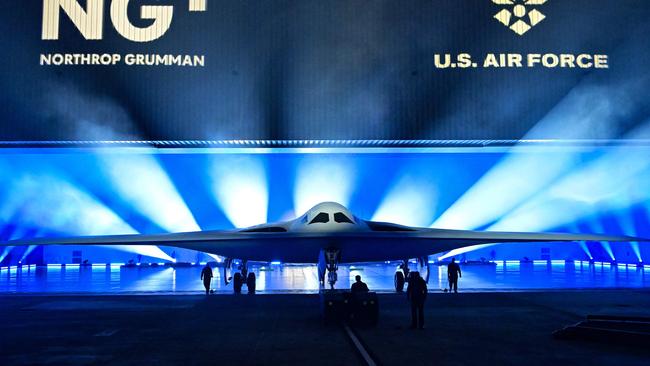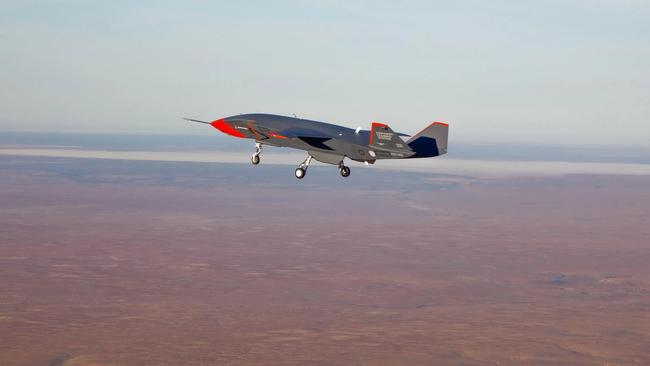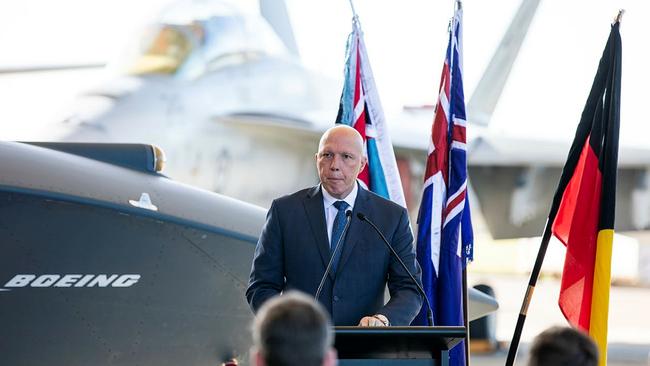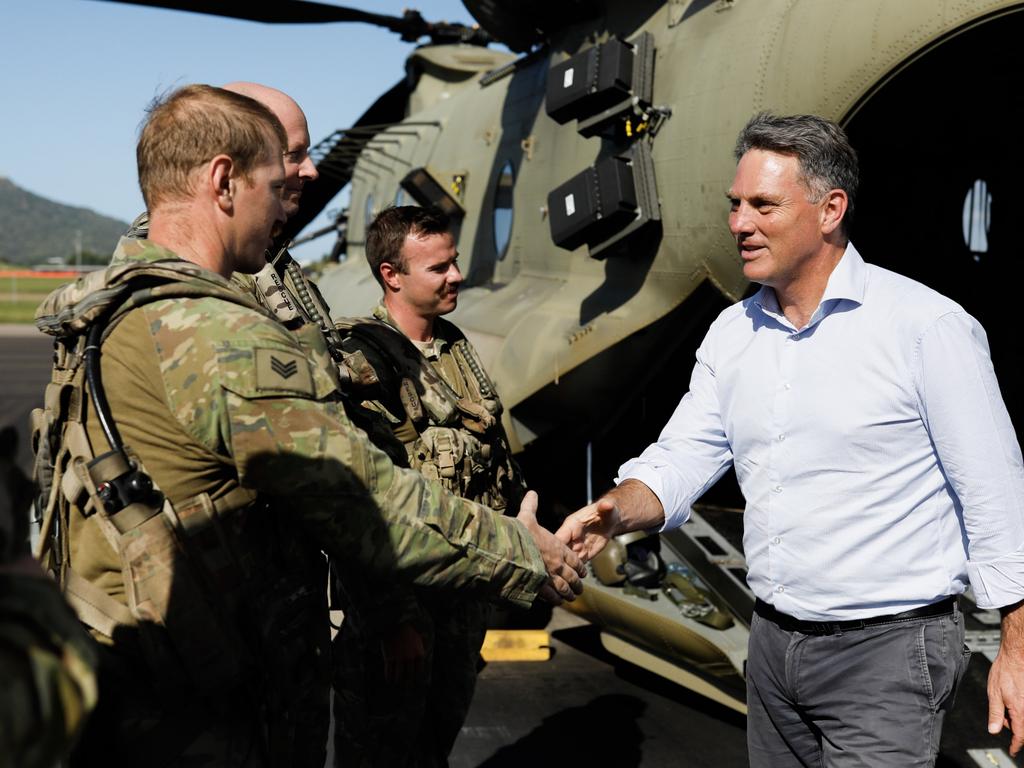The next-generation B-21 Raider is off Australia’s defence wish list, but Ghost Bats get the green light
The B-21 Raider will become the backbone of the US bomber force, amid speculation allies like Australia would want to buy it. Instead, our defence review has greenlit something else.

The government has ruled out buying the B-21 Raider, the next-generation US stealth bomber, in its latest defence strategic review, as it seeks to shift the nation’s defence capability towards naval power as part of strengthened military partnership with the US.
“In light of our strategic circumstances … we do not consider the B-21 to be a suitable option,” the review, which was otherwise light on new announcements in relation to the US.
US Defence Secretary Lloyd Austin late last year unveiled the futuristic new bomber, the first in 30 years and expected to become the backbone of the US bomber force, amid speculation allies, including Australia, would seek to purchase it.
The review did, however, give the green light to procure and help the US develop the MQ-28A Ghost Bat “sovereign autonomous air vehicle designed to operate as part of an integrated system of crewed and uncrewed aircraft and space-based capabilities”.

Developed by Boeing in Australia in partnership with Defence, the MQ-28A is claimed to have “fighter like” performance, enabling it to operate alongside RAAF F-35A Lightning II and F/A-18F Super Hornets, EA-18G Growler airborne electronic attack aircraft and E-7A Wedgetail airborne early warning and control platforms.
Defence wants the aircraft to perform a number of roles, including air combat, electronic warfare and intelligence, surveillance and reconnaissance. A variety of payloads will be carried in the MQ-28A’s reconfigurable nose and a number of sensors are now in the ground test phase.
Head of Air Force Capability Air Vice-Marshal Robert Denney said the introduction of the MQ-28A into service by 2025 will mark a “turning point” in air combat capability.
“Unlike a conventional aircraft, which gives away its role by what it carries under its wings, there’s a little bit of secret in this aircraft,” he said.
The landmark review stressed the US was no longer “the unipolar leader of the Indo-Pacific”, reflecting assessments in Canberra, Washington and elsewhere that the growing power of the Chinese military required “a new strategic conceptual approach” to national defence.

Overseen by former defence minister Stephen Smith and former Air Chief Marshal Angus Houston, the review suggested Australia’s contribution to the global war on terror, led by the US, “had a major adverse impact on capability development for the Defence of Australia concept”.
The growing partnership with India and Japan, along with the US, as part of the Quad group of nations, whose leaders are expected to meet in Australia in May, would also be critical to bolstering defence.
As expected, the 116-page review “strongly supported” the acquisition and construction of the forthcoming fleet of conventionally armed and nuclear-powered attack submarines, details of which were fleshed out publicly in San Diego last month by the leaders of the three AUKUS security pact partners.
“Australia must continue to work closely with our ally and principal strategic partner, the United States … close co-operation with the US is central to achieving balance and stability in the Indo-Pacific,” the review said, foreshadowing increased bilateral military planning with the US, and greater US troop rotations through Australia.
“The acquisition of a conventionally armed, nuclear-powered submarine capability in the shortest possible timeframe should be prioritised,” it added, stressing the importance of increased co-operation with the UK and US to ensure their timely arrival, slated for the early 2030s.
The review also declared climate change “a national security issue”, reflecting similar assessments made by the Biden administration in its defence review updates.
“Climate change will increase the challenges for Defence and Australia, including increased humanitarian assistance and disaster relief tasks at home and abroad,” the review said.





To join the conversation, please log in. Don't have an account? Register
Join the conversation, you are commenting as Logout